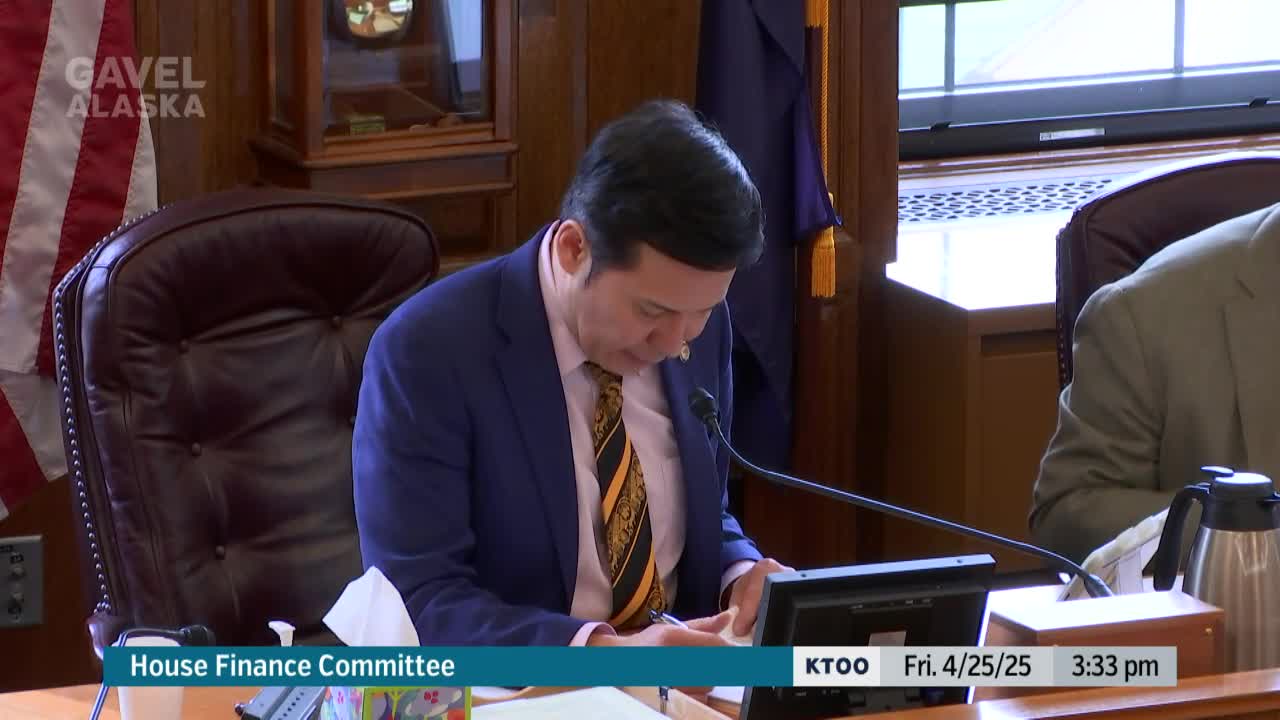House finance committee advances bill to raise Alaska age of consent to 18, adopts close‑in‑age limits
Get AI-powered insights, summaries, and transcripts
Subscribe
Summary
The Alaska House Finance Committee voted 8–1 on April 25 to move House Bill 101, which would raise the state age of consent from 16 to 18, and adopted two amendments that expand a close‑in‑age exemption for 16‑ and 17‑year‑olds and preserve a two‑year limit in authority‑relationship cases.
The Alaska House Finance Committee voted 8–1 on April 25 to move House Bill 101, a measure that would raise the stateage of consent from 16 to 18, and adopted two committee amendments that add a wider close‑in‑age exemption for 16‑ and 17‑year‑olds and preserve a separate two‑year limit for relationships involving a position of authority.
The bill sponsor, Representative Sara Gray, opened the hearing by saying the bill "would raise the age of consent for [sexually explicit] activity from the age of 16 ... to the age of 18," and that the proposal was driven by victim‑service groups who described the 16‑year threshold as a vulnerability for 16‑ and 17‑year‑olds.
Nut graf: Supporters said raising the age of consent would make it easier to prosecute adults who prey on teenagers and better align Alaska with other states, while committee members pressed for narrow exceptions to avoid criminalizing consensual teen relationships and to protect service providers who work with minors.
Public testimony submitted in person and by phone emphasized the billraise would protect adolescents from exploitation. Lori Pickett, a community volunteer with more than 35 years in nonprofit and public sectors, said HB 101 "isn't an extreme idea. It's a necessary one," and noted the bill includes a close‑in‑age exemption to avoid criminalizing "normal, consensual relationships between teenagers." Telephone witnesses from Ketchikan recounted cases where prosecutors could not move forward under the current law; one caller said a district attorney could not pursue a case against a 23‑year‑old alleged exploiter because the younger person was 16.
Committee action and amendments: Representative Jimmy offered Amendment 1 to expand the bill's close‑in‑age exemption for 16‑ and 17‑year‑olds, changing the billfrom a less‑than‑4‑year window to a less‑than‑6‑year window for those two ages (so a 17‑year‑old could legally be with someone up to 23). Representative Gray and the bill's advocates described the change as responsive to recommendations from Alaska Network on Domestic Violence and Sexual Assault and others, aimed at preventing mandatory reporters from being forced to report otherwise consensual teen relationships. Amendment 1 passed on a 6–3 vote.
Representative Josephson then moved Amendment 2 to preserve a separate two‑year difference in situations where the older person occupies a position of authority over the younger person or the parties share a household (examples discussed included a supervisor/employee or a household member). Representative Josephson framed the amendment as preserving the existing two‑year separation in those authority contexts and said the amendment was intended to avoid criminalizing commonplace relationships while still addressing power differentials. The committee adopted Amendment 2 on a 6–3 vote.
Legal consequences cited in committee debate: Casey Schroeder, Senior Assistant Attorney General with the Department of Law, told the committee the amendment's first portion (concerning penetration in a household authority context) would create an offense with a presumptive sentence "of 20 to 30 years, and it carries a lifetime registration requirement." She said the second portion (contact without penetration) would be a class B felony with a presumptive term of "5 to 15 years." Those penalty descriptions came from Department of Law counsel during committee discussion.
Final action: After adopting the two amendments the committee voted 8–1 to move HB 101 (work order 34 LS0451N) out of House Finance "as amended with individual recommendations and attached fiscal notes." Representative Gray thanked the committee for hearing the bill. The measure will proceed to the full House for further consideration.
Ending: Committee members noted the bill will face additional floor debate and that the close‑in‑age language and authority‑based exceptions are likely to be points of further discussion on the House floor.
